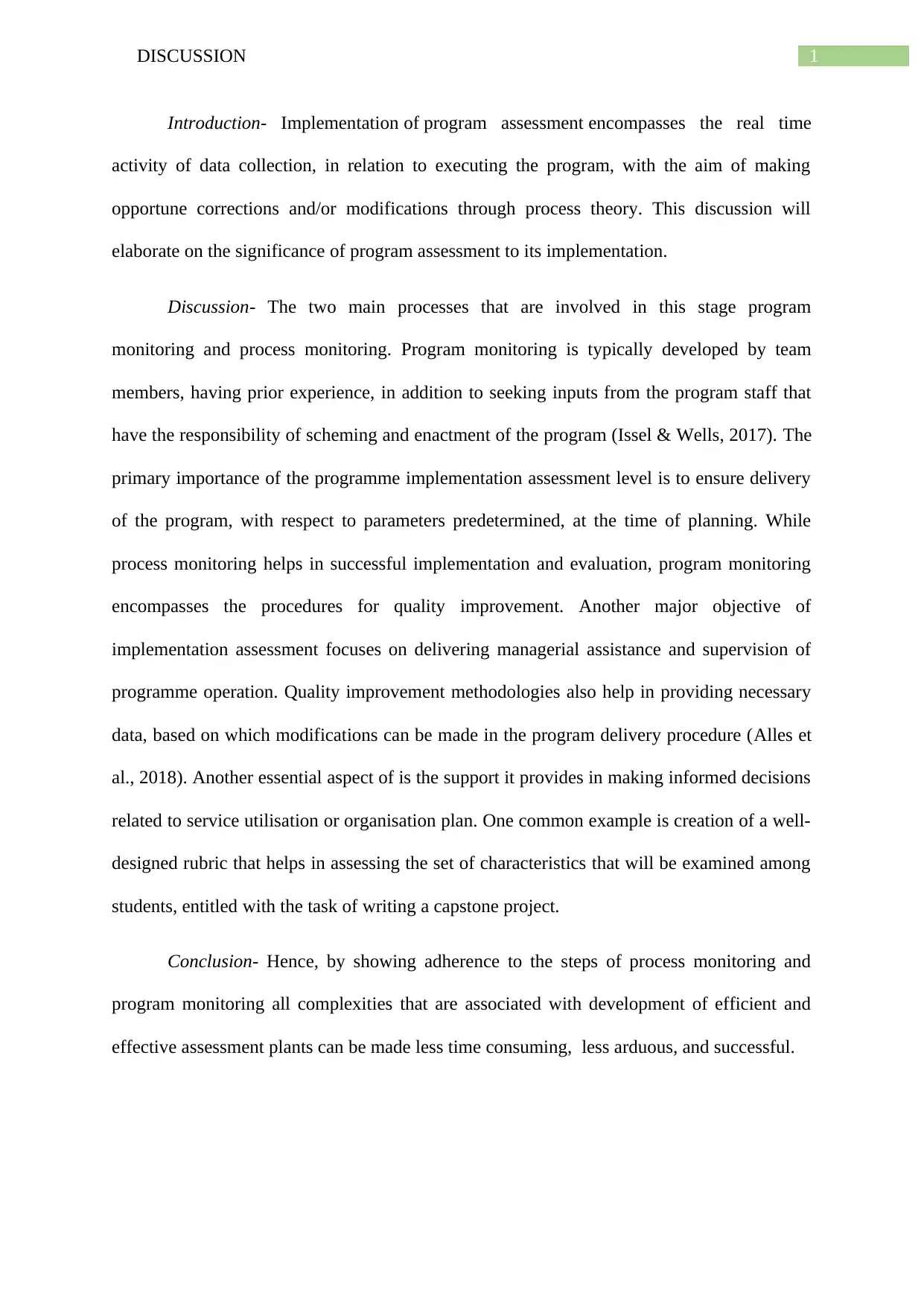Assessment of Health Program Implementation and Evaluation Process
VerifiedAdded on 2023/04/08
|3
|343
|314
Homework Assignment
AI Summary
This assignment solution focuses on health program assessment, particularly the implementation and evaluation phases. It emphasizes the importance of program monitoring and process monitoring in ensuring successful program delivery and quality improvement. The solution discusses how program monitoring, often conducted by experienced team members, helps in making necessary adjustments to program plans. It highlights the role of process monitoring in successful implementation and evaluation, along with the significance of managerial assistance and informed decision-making in relation to service utilization. The assignment also mentions the use of rubrics for assessing program components. The solution references key concepts and methodologies, providing a comprehensive view of health program planning and evaluation processes. The references provided in the assignment include Alles et al. (2018) and Issel & Wells (2017).
1 out of 3










![[object Object]](/_next/static/media/star-bottom.7253800d.svg)